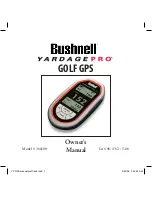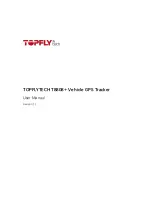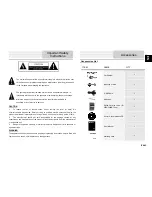
Kisses®
Tag f
or
W
i-F
i Hugs® U
ser S
heet
Kisses T
ag:
p/n T
A
G-KSS
-1000
© 2013 Stanley Healthcare. All Rights Reserved.
05/2013. 0980-014 Rev A DRAFT
.
Stanley Healthcare
130 T
urner Street, W
altham, MA 02453
Phone: +1-888-622-6992
Email: [email protected]
www
.stanleyhealthcare.com
Warranty
Kisses Tags are warranted to be free of manufacturing
defects and perform according to the published
specifications at the time they are put in service as
set out in the operating instructions. Because Kisses
tags are battery powered, NO SPECIFIC LIFE IS
GUARANTEED. Stanley is not responsible for
warranty service should the Kisses label or logo or the
serial number be removed or should the Kisses tag fail
to be properly maintained or fail to function properly
as a result of misuse, abuse, neglect, improper shipping
or any premature exposure of the tag to light other
than removal from the packaging with the intent of
activating the tag.
Limitation of Liability
This Product has been designed for use to assist in the
prevention of mother/infant mismatching incidents.
The range, accuracy, function and performance of this
Product may vary from the published specifications
due to many factors, including, but not limited to, site
impairments from structural effects, metal objects in
the vicinity, placement of the receiver and transmitter,
interference from other electrical devices, atmospheric
effects, installation, and maintenance. There may be
other factors, which also affect performance of this
Product.
Stanley Healthcare (“Stanley”) does not guarantee that
this Product will detect 100% of mother/infant matches
or mismatch incidents, nor does Stanley guarantee that
this Product will be free from returning false reports of
mother/infant matches or mismatch incidents.
Monthly testing and maintenance of this Product, as
described in the Product documentation, is essential to
verify the system is operating correctly and to ensure that
the probability of detecting an alarm and/or locating the
transmitter are maximized.
The failure to undertake regular testing and mainte-
nance will increase the risk of system failure and failure
to detect mother/infant matches or mismatch incidents.
The failure to undertake regular testing and mainte-
nance will increase the risk of false reports of mother/
infant matches or mismatch incidents.
Stanley hereby disclaims all warranties, express or
implied, arising out of or in connection with any of
its Products or services, the use of or performance
thereof, including but not limited to, where allowable
by law, all other implied warranties or conditions of
merchantability, fitness for a particular purpose, and
those arising by statute or otherwise in law or from
a course of dealing or usage of trade.
Stanley’s liability to you or anyone claiming through
or on behalf of you with respect to any claim or loss
arising out of the use or misuse of Stanley’s Product,
defective products or materials, improper installation
or maintenance of Stanley’s Product or products or
the system in which they are incorporated, or alleged
to have resulted from an act or omission of Stanley or
any person, negligent or otherwise, shall be limited
to the following, at Stanley’s sole option:
1) the repair or replacement of defective Product
or materials supplied by Stanley during the
warranty period as set out in the Product docu-
mentation; or, at the option of Stanley,
2) a refund of the purchase price of the Product
supplied by Stanley.
In no event shall Stanley be liable for general,
specific, indirect, consequential, incidental, exem-
plary or punitive damages or any losses or expenses
suffered by you or anyone else, whether or not
Stanley, or its employees, officers, agents, resellers
or installers has been informed of the risk of such
loss or expense and whether or not such losses or
expenses were foreseeable.
Statements
Federal Communication Commission (FCC)
This equipment has been tested and found to comply
with the limits for a Class B digital device, pursuant to
Part 15 of the FCC rules. These limits are designed to
provide reasonable protection against harmful interfer-
ence in a residential installation.
This equipment generates, uses and can radiate radio fre-
quency energy and, if not installed and used in accordance
with the instructions, may cause harmful interference to
radio communications. However, there is no guarantee
that interference will not occur in a particular installa-
tion. If this equipment does cause harmful interference to
radio or television reception, which can be determined by
turning the equipment off and on, the user is encouraged
to try to correct the interference by one or more of the
following measures:
1) Reorient or relocate the receiving antenna.
2) Increase the separation between the equipment
and receiver.
3) Connect the equipment to an outlet on a circuit
different from that to which the receiver is con-
nected.
4) Consult the dealer or an experienced radio/TV
technician.
This device complies with Part 15 of the FCC Rules.
Operation is subject to the following two conditions:
1) This device may not cause harmful interference
2) This device must accept any interference received,
including interference that may cause undesired
operation.
WARNING!
Changes or modifications to this unit
not expressly approved by the party responsible for
compliance could void the user’s authority to oper-
ate the equipment.
This device complies with FCC Rules Part 15
and with Industry Canada licence-exempt RSS
standard(s). Operation is subject to two conditions:
(1) This device may not cause harmful interference,
and (2) this device must accept any interference
that may be received or that may cause undesired
operation.
Le present appareil est conforme aux CNR
d’Industrie Canada applicables aux appareils radio
exempts de licence. L’exploitation est autorisee
aux deux conditions suivantes: (1) l’appareil ne
doit pas produire de brouillage, et (2) l’utilisateur
de l’appareil doit accepter tout brouillage radio-
electrique subi, meme si le brouillage est suscep-
tible d’en compromettre le fonctionnement.




















